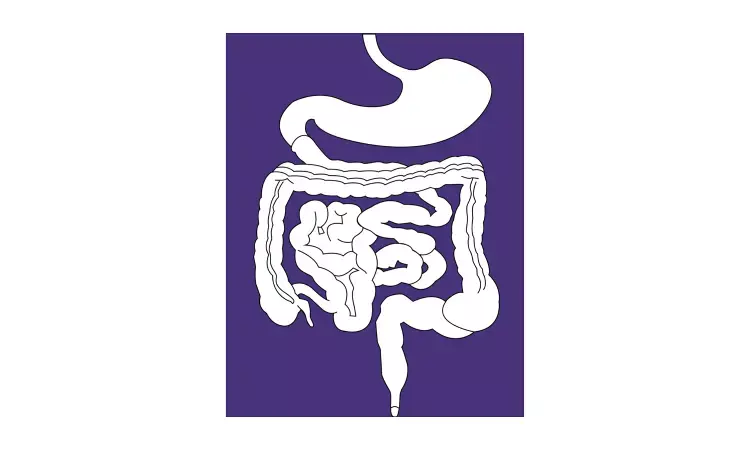- Home
- Medical news & Guidelines
- Anesthesiology
- Cardiology and CTVS
- Critical Care
- Dentistry
- Dermatology
- Diabetes and Endocrinology
- ENT
- Gastroenterology
- Medicine
- Nephrology
- Neurology
- Obstretics-Gynaecology
- Oncology
- Ophthalmology
- Orthopaedics
- Pediatrics-Neonatology
- Psychiatry
- Pulmonology
- Radiology
- Surgery
- Urology
- Laboratory Medicine
- Diet
- Nursing
- Paramedical
- Physiotherapy
- Health news
- Fact Check
- Bone Health Fact Check
- Brain Health Fact Check
- Cancer Related Fact Check
- Child Care Fact Check
- Dental and oral health fact check
- Diabetes and metabolic health fact check
- Diet and Nutrition Fact Check
- Eye and ENT Care Fact Check
- Fitness fact check
- Gut health fact check
- Heart health fact check
- Kidney health fact check
- Medical education fact check
- Men's health fact check
- Respiratory fact check
- Skin and hair care fact check
- Vaccine and Immunization fact check
- Women's health fact check
- AYUSH
- State News
- Andaman and Nicobar Islands
- Andhra Pradesh
- Arunachal Pradesh
- Assam
- Bihar
- Chandigarh
- Chattisgarh
- Dadra and Nagar Haveli
- Daman and Diu
- Delhi
- Goa
- Gujarat
- Haryana
- Himachal Pradesh
- Jammu & Kashmir
- Jharkhand
- Karnataka
- Kerala
- Ladakh
- Lakshadweep
- Madhya Pradesh
- Maharashtra
- Manipur
- Meghalaya
- Mizoram
- Nagaland
- Odisha
- Puducherry
- Punjab
- Rajasthan
- Sikkim
- Tamil Nadu
- Telangana
- Tripura
- Uttar Pradesh
- Uttrakhand
- West Bengal
- Medical Education
- Industry
Low doses of tranexamic acid effective for controlling gastrointestinal bleeding

Gastrointestinal tract bleeding and its management are popularly related with significant morbidity and mortality. The influence of lifestyle is often linked to the occurrence of these hemorrhagic instances.
Tranexamic acid belongs to antifibrinolytics, it works by slowing the breakdown of blood clots, which helps to prevent prolonged bleeding however its safety and efficacy are yet to be evaluated.
A randomized trial by Dr Joanna C. Dionne MD and team revealed that low doses of tranexamic acid helped in reducing and controlling hemorrhage but extended-use high-dose IV tranexamic acid did not improve mortality or bleeding outcomes and in turn increased adverse events. Further studies must be conducted for validating its safety.
The findings of the study are published in Critical Care Medicine journal.
The objective of study was to evaluate the haemorrhage alleviation with Tranexamic Acid-Intestinal System trial evaluated extended-use (24 hr) high-dose tranexamic acid, prompting a reappraisal for tranexamic acid in gastrointestinal bleeding.
The study was a systematic review and meta-analysis of randomized controlled trials comparing tranexamic acid with usual care or placebo in adults with gastrointestinal bleeding. We searched MEDLINE, EMBASE, and CENTRAL. Studies were analyzed as high-dose IV tranexamic acid versus all other dosing strategies for tranexamic acid using fixed-effects models. They assessed certainty of evidence using the Grading of Recommendations Assessment, Development, and Evaluation approach.
The results of the study were
• Five randomized controlled trials evaluated extended-use high-dose IV tranexamic acid, seven evaluating low-dose IV or enteral tranexamic acid.
• Extended-use high-dose IV tranexamic acid did not reduce mortality (relative risk, 0.98%, I2 = 63%; high certainty) or bleeding (relative risk, 0.92; p = 0.17 and absolute risk differences, –0.7%).
• A small increase in deep venous thrombosis (relative risk, 2.01; I2 = 0%), pulmonary embolism (relative risk, 1.78 I2 = 0%), and seizure (relative risk, 1.73; 95% CI, 1.03–2.93) with high certainty.
• Low-dose IV/enteral tranexamic acid did not reduce mortality (relative risk, 0.62; I2 = 0%) but did reduce risk of rebleeding (relative risk, 0.5; I2 = 9%) and need for surgery (relative risk, 0.58; I2 = 11%), with moderate certainty.
Dr Dionne and team concluded that "Extended-use high-dose IV tranexamic acid does not improve mortality or bleeding outcomes and increases adverse events. Low-dose/enteral tranexamic acid may be effective in reducing hemorrhage; more evidence is required to demonstrate its safety."
Reference: Dionne, Joanna C. MD1,2,3; Oczkowski, Simon J. W. MD1,2,3; Hunt, Beverley J. MD4,5; Antonelli, Massimo MD6,7; Wijnberge, Marije MD8,9; Raasveld, Senta Jorinde MD9; Vlaar, Alexander P. J. MD9 for ESICM Transfusion Taskforce and the GUIDE Group Tranexamic Acid in Gastrointestinal Bleeding, Critical Care Medicine: October 27, 2021 - Volume - Issue - doi: 10.1097/CCM.0000000000005362
Medical Dialogues consists of a team of passionate medical/scientific writers, led by doctors and healthcare researchers. Our team efforts to bring you updated and timely news about the important happenings of the medical and healthcare sector. Our editorial team can be reached at editorial@medicaldialogues.in.
Dr Kamal Kant Kohli-MBBS, DTCD- a chest specialist with more than 30 years of practice and a flair for writing clinical articles, Dr Kamal Kant Kohli joined Medical Dialogues as a Chief Editor of Medical News. Besides writing articles, as an editor, he proofreads and verifies all the medical content published on Medical Dialogues including those coming from journals, studies,medical conferences,guidelines etc. Email: drkohli@medicaldialogues.in. Contact no. 011-43720751


